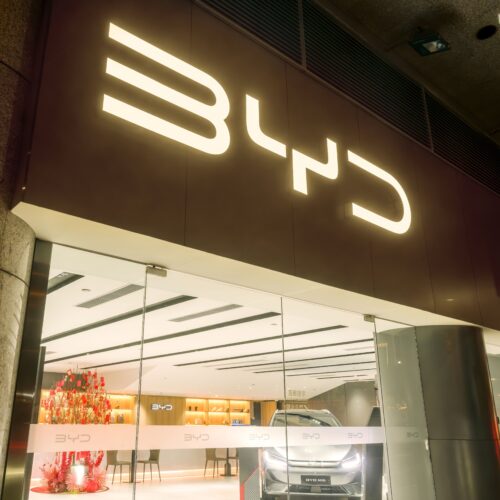I swapped my gas truck for a Chinese hybrid. The BYD Shark is great to drive, but one thing worries me.

Wayne Dopson
- Wayne Dopson runs a renovation business in Brisbane, Australia, and bought a BYD Shark hybrid pickup in March.
- He said it's great to drive compared with his old gas truck, but fears it may be obsolete in a few years.
- Chinese EV makers are expanding rapidly in tariff-free Australia, putting Tesla under pressure.
This as-told-to essay is based on a conversation with Wayne Dopson, a project manager in Brisbane, Australia about owning a BYD Shark hybrid pickup truck. It has been edited for length and clarity.
I've always been in the property market, flipping houses and doing renovations. I have a small renovation business, working on kitchens, bathrooms, and decks for clients in Brisbane, which I've been doing for about 12 years now.
I bought a VW Amarok diesel-powered pickup in 2015. I wanted to upgrade for a while, but nothing came along that took my interest.
Other combustion-engine trucks like the Ford Ranger were all very similar to the Amarok. I would have been getting pretty much the same car with just a bigger screen, so I waited for something a little bit different.
I bought the BYD Shark hybrid pickup in March for 64,000 Australian dollars, around $41,000.
Ford and Toyota are charging ridiculous prices for their pickup trucks, or utes in Australia. You're looking at up to 80,000 dollars for something that is, to me, inferior to what BYD is charging 60,000 for.
I've only done 2,000 kilometers in the Shark so I'm still learning the car, but so far I love driving it.
The technology, the power, and the smoothness — it feels decades ahead of the Amarok.
Luxury and power on the cheap
The level of luxury inside is incredible for the money. I've owned Audis and BMWs and it feels just as good, just as solid and well-built as a premium car. It also does 0 to 100km/h in 5.7 seconds, so it drives like a sports car.

Wayne Dopson
I use it mainly for work as well as leisure, and there are a couple of advantages to using it for work.
It costs me just cents to run it each day. I've got 30 solar panels on my roof, so my electricity during the day is free.
I pay eight cents per kilowatt hour from 12 a.m. to 6 a.m., which is enough time to charge the car — it takes between three to four hours to charge.
If I set the car to charge at midnight, it's done by about 4 a.m., and it generally costs less than two Australian dollars, or $1.03. I'd be using 13 or 14 dollars ($8-9) worth of diesel a day in the VW Amarok, so comparatively it's very cheap to run.
The other advantage is you've got power outlets in the back of the truck that provide about six kilowatts of power, which you can use on-site to power tools.

Wayne Dopson
It's got a really big tray with a couple of little tricks up its sleeve. You can open your tailgate with a quick press of the key, which is handy if you're walking up with your hands full.
Range is not a problem
The Shark is what they call an EREV, or extended range electric vehicle. It's got two electric motors, at the front and rear, and it also has a 1.5-liter petrol turbo engine that acts as a generator.
The petrol engine means range anxiety isn't really a thing for me.
Generally, I do less than 100 kilometers a day, which will be done in electric mode, but if I do want to go to the beach or further down the coast, I've got the petrol engine right there.
That just kicks in and charges the battery and I'm good to go for around 800 kilometers.
The only thing that would worry me down the line is the resale value. I've already seen that new vehicles are coming out from Nissan, Ford, and Great Wall.
The technology is advancing like crazy at the moment, so my Shark could be fairly obsolete in five years.
It's got a six-year warranty, and I'm planning to keep it for the warranty period. What's it going to be worth at the end is anyone's guess.
BYD puts down roots in Australia
I think having more Chinese EV brands in Australia is great. We're getting longer warranty periods and better quality cars.

Wayne Dopson
Utes are a very important part of Australian culture. One of the issues the BYD Shark will face is that it doesn't have the same off-roading credentials as a vehicle with a diff lock — an axle mechanism that you need to crawl over rocks and rough terrain.
It's fine on the sand and in the mud, but when it comes to really serious off-roading, where you are crawling up huge hills with ruts and boulders, it's going to struggle.
For me, though, the Shark is great. It's a pleasure to drive, and it's nice being able to drive around knowing it's not costing me and not costing the planet either.




